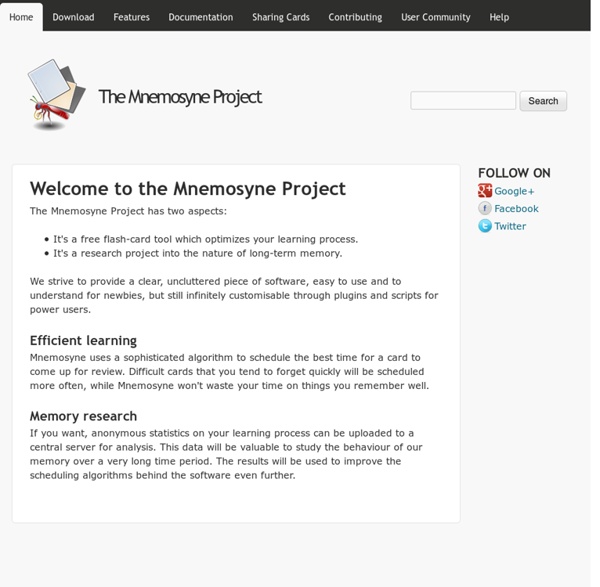Nine Handy Travel Tips to Help Make Your Next Trip Easier : 111 Travel Directory
Here are a few handy travel tips that may help make your travels a little easier, no matter where you plan to go! A bit of careful preparation makes for a happier holiday. Everyone can benefit from the time-tested advice in this short article.
Portuguese idioms
Literal translation of Portuguese popular idioms Compiled, translated and explained by Tágide Crista Last update: 01/2001
Knowledge worker
What differentiates knowledge work from other forms of work is its primary task of "non-routine" problem solving that requires a combination of convergent, divergent, and creative thinking.[2] Also, despite the amount of research and literature on knowledge work there is yet to be a succinct definition of the term.[3] The issue of who knowledge workers are, and what knowledge work entails, however, is still debated. Mosco and McKercher (2007) outline various viewpoints on the matter.
flash cards
[hidepost]Flash cards are a powerful tool to help you memorize things such as vocabulary, mathematical formulas, history facts, and spelling. Here are some strategies to help you get the most from your flash cards. Use flashcards in several different colors. Use each color as a cue to help recall something about the fact on that flash card. For example, if you are using the flash cards to memorize vocabulary words, use a different color for words that have different connotations. Positive words–such as benign, sagacious, and staunch–could go on green or blue 3×5 cards.
Spacing effect
Researchers have offered several possible explanations of the spacing effect, and much research has been conducted that supports its impact on recall. In spite of these findings, the robustness of this phenomenon and its resistance to experimental manipulation have made empirical testing of its parameters difficult. Causes for spacing effect[edit] Decades of research on memory and recall have produced many different theories and findings on the spacing effect. In a study conducted by Cepeda et al. (2006) participants who used spaced practice on memory tasks outperformed those using massed practice in 259 out of 271 cases. As different studies support different aspects of this effect, some now believe that an appropriate account should be multifactorial, and at present, different mechanisms are invoked to account for the spacing effect in free recall and in explicit cued-memory tasks.
DIY Cheap 100 Hour Candles
I am always on the look-out for homemade counterparts to store bought preparations. These DIY ’100 hour candles’ definitely fit the bill. In less than 5 minutes you have an inexpensive, refillable ’100 hour candle’ that will light up your home in the darkest of times. And for you ladies – these homemade alternatives are far more aesthetically pleasing than the store bought versions.
fltr
A Handy App For Language Learning Last Version: 0.8.6 (28-Aug-2012, updated 21-Jun-2013) Abstract and Introduction
Lifelong learning
Lifelong learning is the "ongoing, voluntary, and self-motivated"[1] pursuit of knowledge for either personal or professional reasons. Therefore, it not only enhances social inclusion, active citizenship, and personal development, but also self-sustainability, rather than competitiveness and employability.[2] Evolved from the term “life-long learners” created by Leslie Watkins and used by Professor Clint Taylor (CSULA) and Superintendent for the Temple City Unified School District’s mission statement in 1993, the term recognizes that learning is not confined to childhood or the classroom but takes place throughout life and in a range of situations. During the last fifty years, constant scientific and technological innovation and change has had a profound effect on learning needs and styles.



